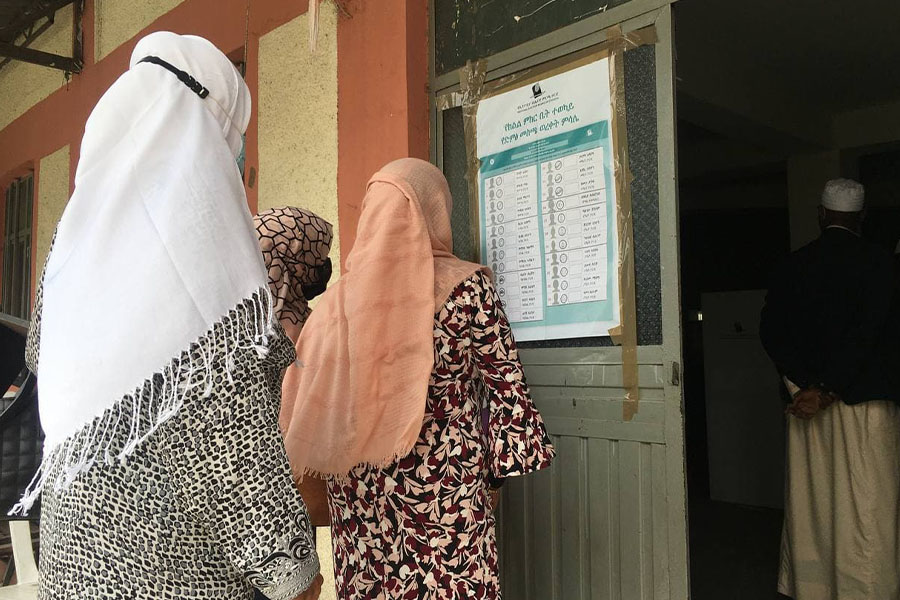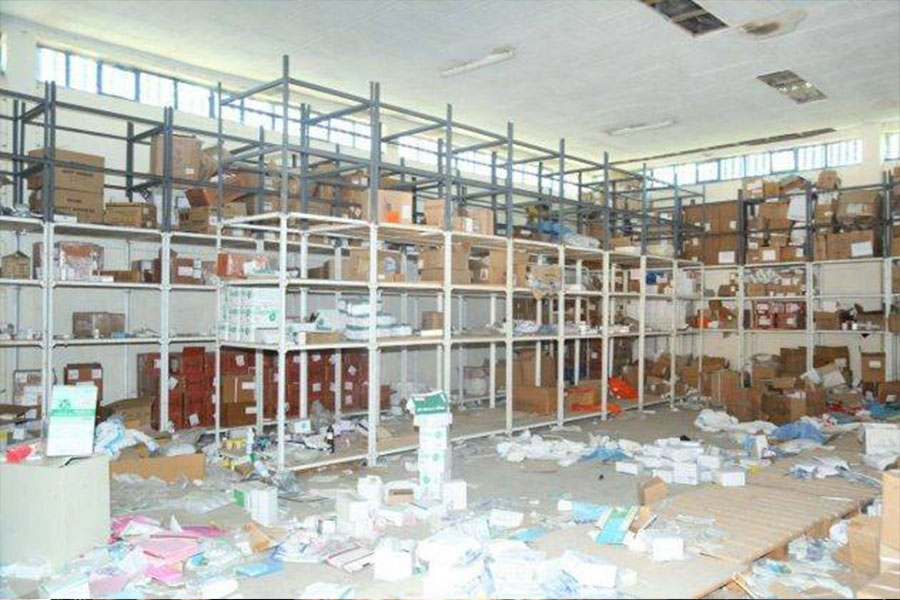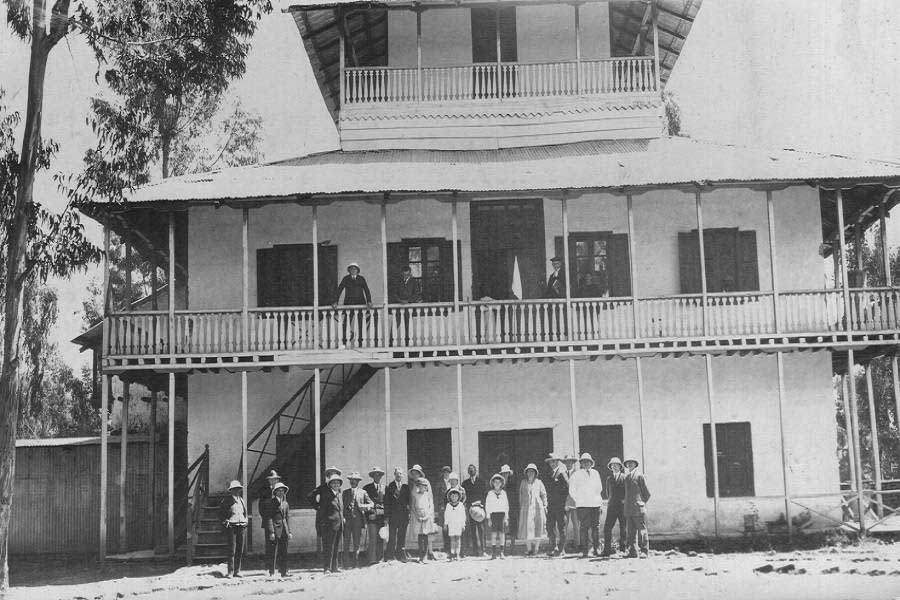
Editorial | Mar 23,2024
Dec 9 , 2023
By Shewangezaw Seyoum
The new city development strategy for Addis Abeba will be a complex but necessary endeavour, demanding a comprehensive and multifaceted approach that addresses the city's economic, social, and environmental challenges. By embracing innovative planning methods, promoting inclusivity and sustainability, leveraging technology, and ensuring strong governance, Addis Ababa can chart a path towards a more prosperous and resilient urban future, writes Shewangezaw Seyoum (swsm02@yahoo.com).
As Addis Abeba stands on the cusp of initiating a new City Development Strategy (CDS), the task ahead is monumental as it will be fraught with uncertainty. The city, already challenged by a host of socio-economic and infrastructural limitations, finds itself at a crucial juncture where the demand for a comprehensive and effective urban development plan has become more pressing than ever.
The city administration has begun staffing a project office dedicated to developing the CDS. The office is charged with drafting the strategy, organising stakeholder engagements, conducting research and analysis, and ultimately presenting the final draft to relevant authorities and stakeholders. The timing of this initiative is critical, as city residents continue to face increasing difficulties in various spheres of their lives.

One of the most pressing issues facing Addis Abeba is the soaring cost of living. In recent years, the city has witnessed a significant increase in the prices of essential groceries, exacerbating the already prevalent problems of housing shortages and high rent costs. A high rate of youth unemployment, leading to increased dependency within families and contributing to a general sense of economic instability, has compounded the economic pressures.
The transportation sector has also been a source of collective frustration. Residents face long queues waiting for taxis, encounter ever-increasing fares, and frequent interruptions in power supply, adding to the daily struggles of navigating the city. These issues stress the broader infrastructural constraints that have long plagued Addis Abeba, including inadequate housing, poor urban infrastructure and services quality, and weak governance in secondary cities.
Efforts to address these challenges to date have been insufficient. Measures such as subsidies and expanding alternative market outlets for consumer goods have failed to reduce prices significantly. Despite the operation of a metro and the introduction of taxis and buses from neighbouring states, improvements in mobility fell short of meeting the expectations of city dwellers.
These issues raise questions about the effectiveness of traditional urban planning strategies in addressing the complex and interlinked challenges Addis Abeba faces. The city's problems are not solely of its own making but are also a result of national urban dynamics. The dominance of Addis Abeba in Ethiopia's urban system, coupled with inadequate infrastructure, housing, and governance in other towns and cities, has led to a disproportionate concentration of population and economic activities in the capital.
The disparity has, in turn, fueled further migration to Addis Abeba, exacerbating the city's crises.
Launching a new development strategy for Addis Abeba presents an opportunity to rethink urban planning and development approaches. Traditional planning concepts may no longer be sufficient to address the city's multifaceted and interconnected issues. Instead, there is a need to embrace principles that acknowledge the complexities and uncertainties inherent in urban development. This approach involves recognising the potential for vulnerability, risk, and failure and seeing opportunities for resilience, sustainability, and positive change.
The CDS process also confronts the absence of public engagement. A history of plans that drift from their intended outcomes has led to public scepticism, making implementing new strategies more demanding. The city administration must consider alternative planning approaches beyond the traditional master planning mindset. Emergent, integrated, and collaborative planning approaches can provide more dynamic and responsive frameworks for addressing the city's needs.
The role of cities as hubs of decision-making, entrepreneurship, and citizenry cannot be understated. Neither should Addis Abeba's potential for urban scale and diversity to optimise the synergistic effects of human interaction be underestimated. This requires the participation of all stakeholders in creating a city that functions effectively and promotes economic development, environmental sustainability, social cohesion, democratic governance, and cultural expression.

However, the challenge lies in recognising that cities, like individuals, are unique with their own distinct natural, cultural, and socio-political configurations. Therefore, any urban strategy for Addis Ababa must be tailored to its specific context, considering its historical, cultural, and socio-political dimensions. This demands innovative approaches, such as emergent urbanism, that can adapt to each city's unique challenges and opportunities.
As Addis Abeba embarks on its new development strategy, it is imperative to recognise the magnitude of the task.
The strategy must be qualified to respond to the diverse and pressing needs of the city's residents and the country. This can only be achieved through new ways of engaging stakeholders and adopting planning approaches that are flexible, inclusive, and responsive to the evolving urban landscape. The success of Addis Abeba's development strategy will depend on its ability to navigate these complexities and forge a path toward a more sustainable and equitable urban future.
PUBLISHED ON
Dec 09,2023 [ VOL
24 , NO
1232]


Editorial | Mar 23,2024

Fortune News | Sep 30,2021

Fortune News | Dec 19,2021

Commentaries | Mar 30,2019

Editorial | Oct 16,2021

View From Arada | Nov 09,2024

View From Arada | Apr 16,2022

Radar | Mar 11,2023

Photo Gallery | Apr 26,2019

Radar | May 25,2019

My Opinion | 128690 Views | Aug 14,2021

My Opinion | 124938 Views | Aug 21,2021

My Opinion | 123020 Views | Sep 10,2021

My Opinion | 120834 Views | Aug 07,2021

Dec 22 , 2024 . By TIZITA SHEWAFERAW
Charged with transforming colossal state-owned enterprises into modern and competitiv...

Aug 18 , 2024 . By AKSAH ITALO
Although predictable Yonas Zerihun's job in the ride-hailing service is not immune to...

Jul 28 , 2024 . By TIZITA SHEWAFERAW
Unhabitual, perhaps too many, Samuel Gebreyohannes, 38, used to occasionally enjoy a couple of beers at breakfast. However, he recently swit...

Jul 13 , 2024 . By AKSAH ITALO
Investors who rely on tractors, trucks, and field vehicles for commuting, transporting commodities, and f...

May 3 , 2025
Pensioners have learned, rather painfully, the gulf between a figure on a passbook an...

Apr 26 , 2025
Benjamin Franklin famously quipped that “nothing is certain but death and taxes.�...

Apr 20 , 2025
Mufariat Kamil, the minister of Labour & Skills, recently told Parliament that he...

Apr 13 , 2025
The federal government will soon require one year of national service from university...

May 3 , 2025
Oromia International Bank introduced a new digital fuel-payment app, "Milkii," allowi...

May 4 , 2025 . By AKSAH ITALO
Key Takeaways: Banks face new capital rules complying with Basel II/III intern...

May 4 , 2025
Pensioners face harsh economic realities, their retirement payments swiftly eroded by inflation and spiralling living costs. They struggle d...

May 7 , 2025
Key Takeaways Ethiopost's new document drafting services, initiated in partnership with DARS, aspir...